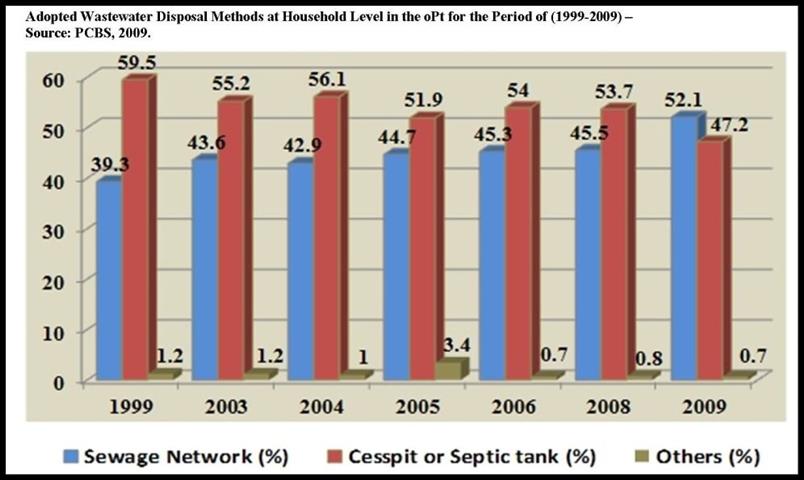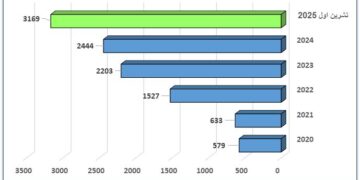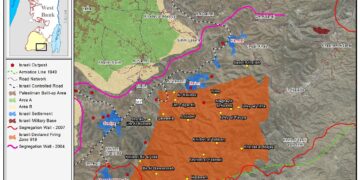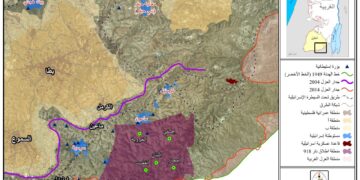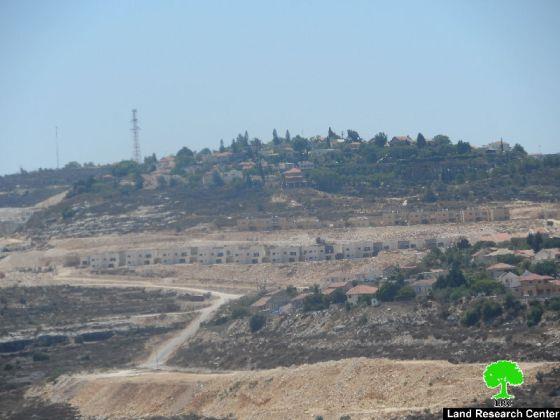In an article published on Haaretz on July 3 based on a report prepared by the Israel Parks and Nature Authority claims that Almost 90 percent of sewage from Palestinian towns in the West Bank flows into the environment untreated, contaminating the groundwater and 162 kilometers of streams. The article also claims that a lack of Israeli-Palestinian cooperation has impeded solutions to this problem. Seriously, let’s not go in circles on this one because the answer to such problem if it exists will be the answer to all the problems and other hanging issues. Yes it is ending the Israeli occupation and control over Palestinians’ lives. the report, which is prepared for the use of the Israeli Environmental Protection Ministry and the Civil Administration in the West Bank, naively or just acting like it suggest that the solution to such problem is to build treatment plants along the green line to serve the Palestinian communities and the Israeli settlements. However, what the article fails to say is how the problem originated from the beginning: the occupation is the answer. It also fails to say why the Palestinians are not dealing with this issue in the proper fashion: the answer is also the occupation. Israeli is attempting to color such cooperation as an inevitable acceptance to settlements existence in the West Bank. more than that Israel knows that such costly projects is way too expensive and the only way to get fundraisings for it is to do it through bilateral cooperation with the Palestinian this way Israel get to implement such project but more significantly get a direct recognition of settlements’ existence as a fact accepted by the Palestinians. The fact of the matter is as long as Israeli will continue its coercive control on 61% of the West Bank that constitutes area “C” and control over all border points including sea, air and land Palestinians will not be able to cope with issues that disturb their life including the sewage issue. So as far as contaminating the groundwater with untreated sewage and 162 km of sewage streams “so they say” the Israeli occupation will always be the one and sole responsible for it.
Palestinian Sewage but not their Water
It is no secret that Israel hogs some 85% of the water resources in the West Bank and direct most of it to settlements and other areas in Israel, which ultimately ridicules
the signed Israeli-Palestinian Interim Agreement of 1995 intended to examine the need for a comprehensive survey of water resources
The Gaza Jericho Agreement, of May 1994 called upon both Israel and Palestinians to conform with international standards pertaining to acceptable levels of treatment and disposal of solid and liquid wastes. both concerned parties established follow-up subcommittee to prevent harm to water resources under what came to known as the “no harm principle”, which was reaffirmed in the Interim Agreement on the West Bank and Gaza Strip of September 1995, Article 12 of the Oslo II agreement , and both parties agreed to cooperate and share the responsibility of preventing damage to the environment and taking measures to ensure that activities in areas controlled or managed by one party do not cause environmental damage to areas controlled or managed by the other party. this is self explanatory and means that Israel is responsible for the 162 km of sewage streams that runs in the area controlled by them: area “C” that is and until Palestinians assume responsibilities there how can they do any thing about it. Also, both parties agreed to several provisions; the following are some of which:
- Promote proper treatment of domestic and industrial wastewater, as well as solid hazardous wastes; (But how can the Palestinians do that when Israel remains adamant in controlling what Palestinians may or not may import and how to carryout their business)
- Prevent uncontrolled discharge of wastewater to water resources; (But how can the Palestinians do that when Israel remains adamant in controlling area “C” where such suggested control is best practiced)
- Take precautions to prevent water and soil pollution as well as other environmental safety hazards; (but what about what the Israeli settlers do, discharging all sort of waste and solid waste produced from settlements and industrial zone that operate in the West Bank with least if any of the Israeli environmental specifications implemented beyond the green line. as for the Palestinians; lets say it again: but how can the Palestinians prevent anybody for that matter and/ or take precautions when they are unable to access two/third of the West Bank.)
Nonetheless, a committee of joint experts from both sides was established to make sure that what ever provision agreed upon are implemented in the most effective possible way for the environment sake. To that end, the “joint Water Committee” was established as a representative and acting body during the interim period. Article 40 of the agreement in particular is most interesting since it allows the Israeli side to unilaterally approve or reject any proposal with regard to water and wastewater sectors
But again, how can the Palestinians carryout their part when the Israeli committee of experts was given the right to veto any Palestinian decision but the Palestinians can’t have a say in any of the Israeli decisions involving the West Bank. hence, Israel remains adamant it its unilateral control over the water and wastewater sector in the West Bank, and refuses to live up to its obligations in the agreement and under the international law.
Connection to Sewage Systems
Nonetheless, connection to sewage collection network in the West |Bank has witnessed a significant increase between the years 1999 from 39.3% to 52.1%, an increase in household connection in the West Bank by 12.8% in a ten years period.
|

Graph 1: Adopted wastewate r disposal methods at household level in the oPt for the period of 1999-2009
(Source: PCBS, 2009)
|
However, wastewater collection network remains limited to areas “A” & partially “B” of the West Bank which translates on the ground to the major Palestinian cities and the refugee camps that exist within
Ultimately, whatever of the collected wastewater is treated (6.33%) in centralized and collective wastewater treatment plants located in the West Bank, the rest is disposed into the environment, where cesspits remains the most common disposal method for wastewater in the West Bank. as for the remaining it is discharged untreated into the environment; part of which is treated by Israeli treatment plants located inside Israel.
The following link for more detailed information
Socio-economic Developement in the oPt.

